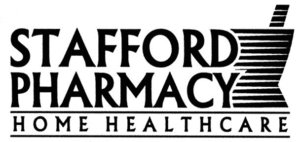Infection control
The following products are required to prevent the transmission of infectious agents – bacterial, viral, or fungal. The strategies are meant to break the cycle of infection as well as to protect YOU from infection.
Gloves
Gloves are used any time you want to protect yourself against contamination. Medical gloves are available size small, medium, large and extra large. Most commonly gloves are made of latex, nitrile (latex free) and vinyl (latex-free). Available as powdered or powder free.
When choosing the right glove for you, consider any allergies such as latex and consider if you want powder for easy application and removal or prefer non-powdered, limiting the amount of powder that travels to clothing.
Also available are sterile medical gloves, this is medical glove that has been packaged in a sterile environment and sealed into individual packaging. Unless the user is familiar with proper sterile technique, the care provided will not be considered sterile. These gloves are all considered disposable and recommended for one time use. We sell gloves individually or by the box, which consists of 100 gloves.
Related Links:
http://www.futuremed.ca/FR/files/PhysiciansCatalogue2007.pdfhttp://www.primed.ca/Products/Gloves.aspxDisposable Masks
Disposable face masks are used during many medical procedures, as a preventative measure to limit the passing of illness, infection, airborne pathogens and/or body fluids between caregivers, patients and others. Alternatively masks are sometimes worn by people affected by allergies to prevent allergens from entering their lungs.
Masks are available in a variety of designs and ratings. When there is a high risk or infectious pandemic such as with SARS, Health Canada will specify the mask rating recommended. In these cases a thin, paper mask may not be sufficient.
Masks are available in a N95, N99 rating, with vira shield maximum protection guard. In high risk situations, you will want to look for a mask with NOISH approved ratings. National Institute for Occupational Safety and Health (NOISH) certifies safety ratings that indicate the product meets their stringent requirements. This approval should help you to breathe easier knowing that the mask has gone thru rigorous testing and meets very high standards to protect you.
Related Links:
Anti-bacterial Hand Sanitizers
Anti-bacterial hand sanitizers are used as an alternative to hand washing or in combination with hand washing. They are a useful tool in preventing, or at least limiting, the spread of illnesses as many of them can kill up to 99.9% of bacteria. Alcohol based sanitizers are commonly used in public environments where access to soap and water is limited or not feasible to use. Alcohol based sanitizers are the most commonly used because they do not require water or towels for drying. To have the most effective sanitizer, it is recommended that there is a minimum of 60% alcohol. In a commercial or public setting hand sanitizers are commonly used with a dispenser.
To use, apply enough hand sanitizer to your palm to effectively coat both hands completely. Rub your hands together for up to 30 seconds until the alcohol dissipates and your hands feel dry. It is recommended that you use sanitizer before and after numerous activities (ex. sneezing, coughing, preparing food, cleaning/treating a wound etc). It is not recommended to only use hand sanitizer, if your hands are visibly dirty soap and water is still recommended, you may then follow with hand sanitizer.
Related Links:
http://www.debgroup.com/ca/products/dispensers/ca/deb-proline-1-litre-hygenipak-dispenser


